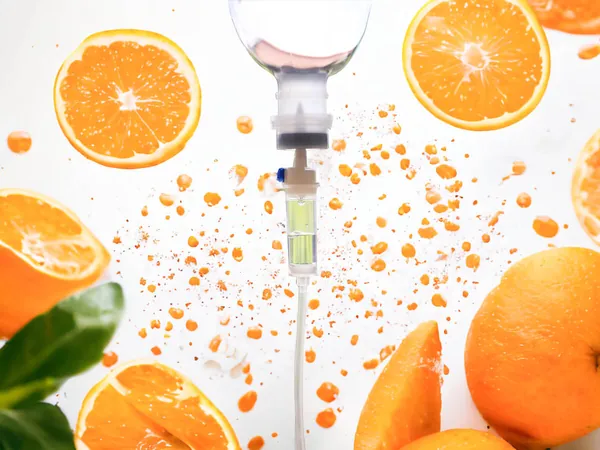
Breakthrough Study Reveals High-Dose Vitamin C Could Significantly Extend Life for Pancreatic Cancer Patients!
2024-12-01
Author: Arjun
Groundbreaking Study Findings
A groundbreaking study in the November edition of *Redox Biology* has ignited hope among pancreatic cancer patients, revealing that adding high-dose intravenous vitamin C to standard chemotherapy could potentially double survival rates. Researchers found that patients with late-stage, metastatic pancreatic cancer experienced a remarkable increase in average survival from eight months to a staggering 16 months when treated with this innovative approach.
Significance of the Research
Dr. Joseph J. Cullen, a prominent professor of Surgery and Radiation Oncology at the University of Iowa, expressed the significance of these findings in a statement to *StudyFinds*: "This deadly disease typically boasts very poor outcomes for patients. We initially aimed for a 12-month survival rate, but the results surpassed our expectations, allowing us to halt the trial early due to the evident benefits on patient survival."
Study Design and Results
The study involved 34 patients suffering from stage 4 pancreatic cancer, who were divided into two groups. One group received the standard chemotherapy regime involving gemcitabine and nab-paclitaxel, while the other group was given the same chemotherapy combined with intravenous infusions of 75 grams of vitamin C administered three times a week. The patients who supplemented their chemotherapy with vitamin C reported not only longer survival but also an improved quality of life, experiencing fewer side effects and greater tolerance for ongoing treatments.
Related Research on High-Dose Vitamin C
These promising results mirror additional research led by Dr. Cullen and Bryan Allen, MD, PhD, chief of Radiation Oncology at the University of Iowa, which examined high-dose vitamin C in conjunction with chemotherapy and radiation for glioblastoma, a notoriously aggressive brain cancer. Their findings here also indicated a significant boost in patient survival rates.
Two Decades of Research
For nearly 20 years, Cullen, Allen, and their team have been investigating the anti-cancer properties of high-dose intravenous vitamin C. They discovered that this method achieves blood concentration levels of Vitamin C that are unattainable through oral intake, rendering cancer cells more susceptible to chemotherapy and radiation treatments. "Our approach has yielded progressively encouraging results at every phase of testing," Cullen remarked. "For example, during one of our phase 1 trials targeting pancreatic cancer, where high-dose vitamin C was combined with radiation, we have three long-term survivors who have lived beyond nine years—far off the expected survival range."
Implications for Future Treatment
As researchers and clinicians from multiple departments at the University of Iowa and the Medical College of Wisconsin continue to pursue this pioneering work, the implications of these findings could reshape treatment protocols for pancreatic cancer and possibly other forms of cancer. The potential of high-dose vitamin C therapy symbolizes a beacon of hope in what has been an ominously challenging field of oncology.
Conclusion
Stay tuned for more updates as this research unfolds, potentially paving the way toward new, life-saving treatments for cancer patients globally!

 Brasil (PT)
Brasil (PT)
 Canada (EN)
Canada (EN)
 Chile (ES)
Chile (ES)
 España (ES)
España (ES)
 France (FR)
France (FR)
 Hong Kong (EN)
Hong Kong (EN)
 Italia (IT)
Italia (IT)
 日本 (JA)
日本 (JA)
 Magyarország (HU)
Magyarország (HU)
 Norge (NO)
Norge (NO)
 Polska (PL)
Polska (PL)
 Schweiz (DE)
Schweiz (DE)
 Singapore (EN)
Singapore (EN)
 Sverige (SV)
Sverige (SV)
 Suomi (FI)
Suomi (FI)
 Türkiye (TR)
Türkiye (TR)